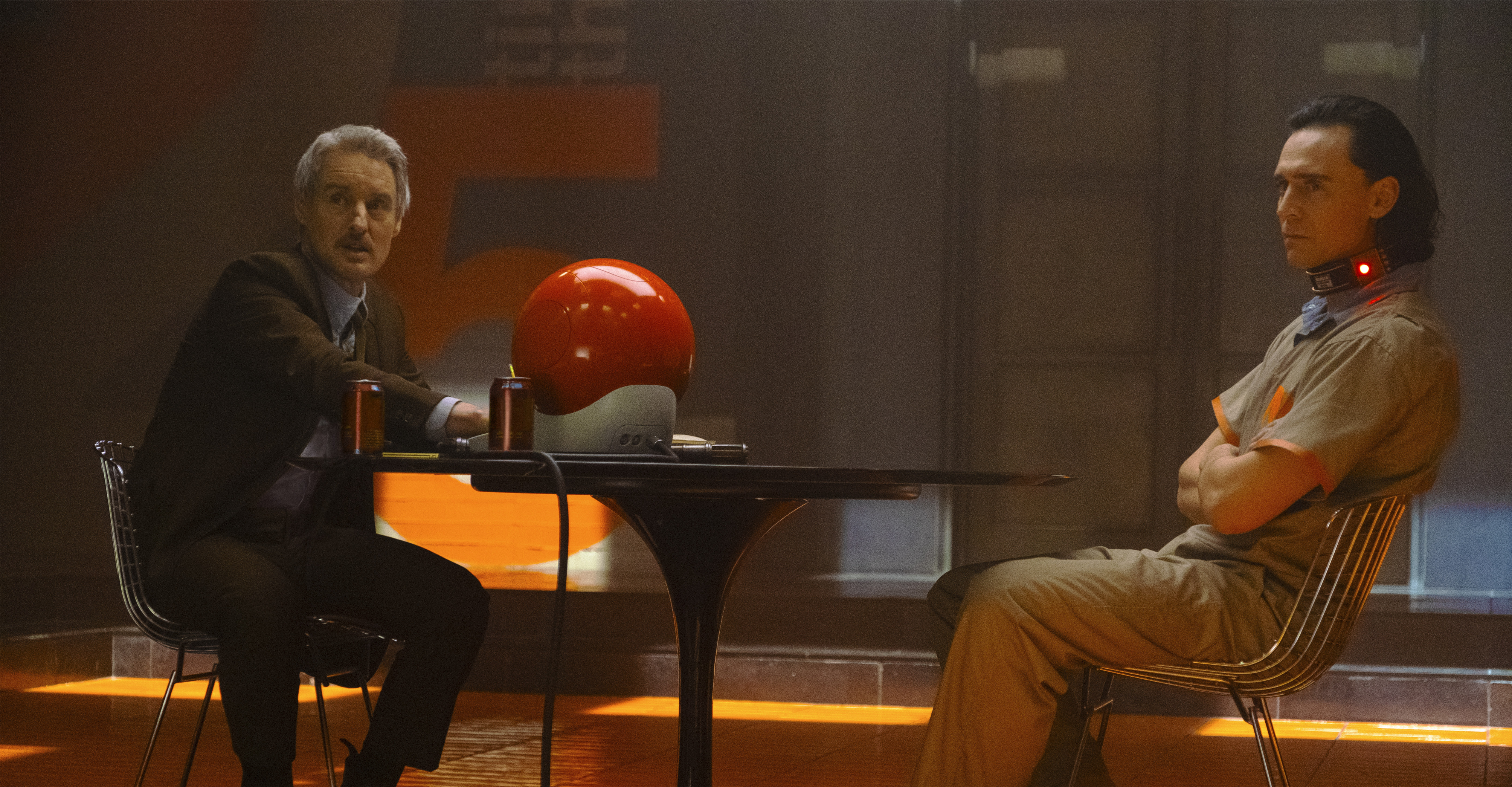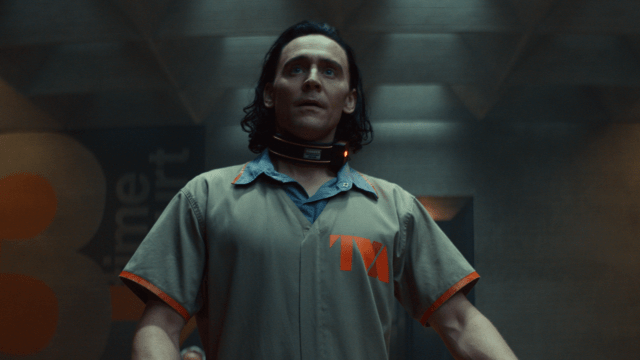Loki has become one of the Marvel Cinematic Universe’s most beloved characters, and the God of Mischief’s arc from cackling villain to sacrificial anti-hero has endeared him to viewers over a decade of movies. His new self-titled television series on Disney+ is less interested in continuing this arc specifically, however — and more with what and who Loki is to himself.
Loki is cut more from the vein of Wandavision than it is The Falcon and the Winter Soldier — exchanging grounded contemporary action for more esoteric, fantastical settings glimpsed through a faux-retro lens, this time specifically evocative of late ‘60s and ‘70s sci-fi like Doctor Who and The Avengers (no, not those ones). The series, written by Michael Waldron and directed by Kate Herron, presents itself as a time-bending adventure big on mystery and high on its own supply of weirdness. But while the kooky vibes and time-travel density make for a heady experience, at its core there’s something much more simple and personable the show is interested in asking: who is Tom Hiddleston’s ever-shifting god of tricks and lies, and who even gets to decide?
Set in the wake of Avengers: Endgame’s own reality-warping twist, Loki picks up with Hiddleston’s Asgardian at an intriguing point in his personal trajectory. This is, very deliberately, not the Loki we’ve known for the best part of the MCU’s long and occasionally convoluted timeline. This is a Loki smarting from his defeat at the hands of his brother and a new age of heroes in the first Avengers film. He’s angry and lashing out at the world around him, one which refuses to acknowledge his identity, and still torn between the worlds of Asgard and Jotunheim. It provides an interesting conundrum when, one Tesseract-enabled escape from Earth’s Mightiest heroes later, Loki finds himself confronted with a new kind of power: the Time Variance Authority, a harsh, bizarre organisation that sees his meddling as going against the “sacred timeline” they’ve spent generations safeguarding (and something fans haven’t heard uttered in the MCU until now), and they want him to help solve the mess.

Part of what makes Loki work — and lets it stand a little aside to its fellow MCU Disney+ siblings — is that it seems less interested in dragging out the big mysteries it sets up as we and our titular character are thrown into the quaint yet sprawling internal politics and structures of the TVA. Instead, it’s more focused on reveling in the suitably Loki-an chaos that comes with popping those big reveals fast, and layering them on to provide new context and intrigue. Why is Loki at the TVA? What’s he getting out of all this? What’s he up against? Does what we saw in the post-Avengers movies even matter anymore? All these questions are raised as the show sets the stage for its premise and introduces us to the strange, esoteric world of the TVA. For the most part, it provides answers quickly before presenting a wrinkle of new information that expands on those questions in surprisingly interesting ways, letting their mysteries grow and evolve (and that’s just in the first two episodes we’ve seen). But beyond just the ephemeral chase of question after question, Loki uses these moments of mystery to bring a sense of intimacy to its titular characters plight, providing Hiddleston with material that lets him dive deep into the god’s psychology, and go beyond the playfully villainous trickster mould he’d established across his MCU history.
It’s also, by and large, just quite fun. There are moments of drama in the first episode, and plenty of intriguing-set up to drive the most dedicated of Marvel fans to their mental whiteboards theorizing who’s who, what’s what, and just when Mephisto could show up (sorry on the latter front, but it seems a bit unlikely). But Loki is primarily driven by a manic, buddy-cop rapport between our titular anti-hero and Owen Wilson’s mysterious Agent Mobius M. Mobius — a TVA agent who is equal parts a company diehard and also a bit of a cool vagabond. He lackadaisically strolls about the TVA’s halls like he kind of owns the place, and Wilson is in fine form, a fitting foil to Loki’s peculiar new role as a master manipulator suddenly out of control. As it pushes and pulls between Loki’s ever-present desire to bite his thumb at authority and his attempts to prove himself to this man he’s just met that he’s capable of being a… loosely good person, their partnership is electric and comical in all the right ways. It’s an energy that expands delightfully when you throw in the more no-nonsense agents of the TVA into the mix, like Gugu Mbatha-Raw’s (Doctor Who, Fast Colour) mysterious Judge Ravonna Renslayer, or Wunmi Mosaku’s (Lovecraft Country) zealous and self-serious Hunter-B15, who push Loki to rely on things other than his charm and tricks simply through the sheer force of will that they have no time for his bullshit.

But while part of the joy of Loki (beyond its mystery and its twee aesthetic) is watching Hiddleston and Wilson ping off each other, beneath the humorous surface their bond is vital to the show’s central thesis: in a world of time cops and fixed progression, what even is a god of chaos’ purpose? What is free will in a world of fate and determined ends? Who decides what we hold onto as the definition of our very selves, if not us? Loki, the character, has spent a decade of Marvel movies on a journey that matters, not just to the legion of fans that have come to admire him but to himself, an evolution that made his trials, tribulations, and ultimate sacrifices compelling to watch.
The show, even in presenting us a twist to the god of mischief’s past, asks us importantly not to forget this. But it also invites us to recontextualise that journey through new eyes, in such a way that brings a fresh and fascinating perspective to how we see Loki and how he sees himself. Appropriate perhaps then, that in a series for a character as shape-shifting and tricky as Loki, that we’re given the chance to add new layers to our definition of the character in such a charmingly clever manner.
Loki begins streaming on Disney+ this Wednesday, July 9.
Stay tuned to Gizmodo this week for more!
